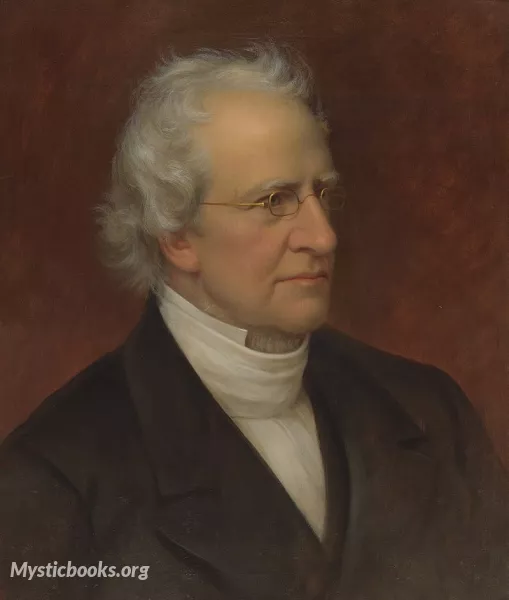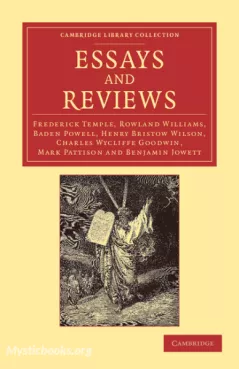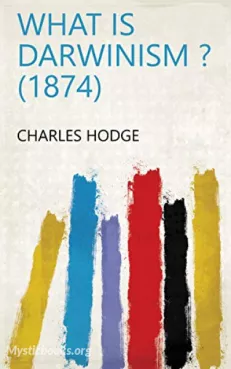
Timeline
Title
Country/Nationality
Charles Hodge
Charles Hodge was an influential American theologian and Presbyterian minister who played a significant role in shaping Protestant theology in the United States during the 19th century. He was born on December 27, 1797, in Philadelphia, Pennsylvania, and was the son of a successful businessman. Hodge's parents were devout Presbyterians, and he grew up in a religious household, which greatly influenced his later career as a theologian.
Hodge was educated at the College of New Jersey (now Princeton University), where he was deeply influenced by the teachings of the college's president, Dr. Archibald Alexander. After graduating in 1815, Hodge went on to study theology at Princeton Theological Seminary, where he was mentored by Dr. Samuel Miller.
Hodge's theological principles were firmly rooted in the Reformed tradition, which emphasized the sovereignty of God and the authority of Scripture. He believed that the Bible was the inspired and infallible word of God and that all Christian doctrine should be based on the teachings of the Bible. Hodge was also deeply committed to the Westminster Confession of Faith, a Reformed statement of faith that he saw as the best summary of biblical doctrine.
Hodge was famous for his work as a professor of theology at Princeton Theological Seminary, where he taught for over 50 years. He was a gifted teacher and a prolific writer, and his influence on American theology was profound. Hodge's students included many prominent theologians and ministers, and his books and articles were widely read and respected.
Hodge's most notable works include his three-volume Systematic Theology, which remains a classic in the field of Reformed theology. He also wrote commentaries on several books of the Bible, including Romans, Ephesians, and 1 Corinthians, and he edited the Princeton Review, a respected theological journal.
Hodge's philosophy can be summed up in his belief that theology should be based on the teachings of the Bible and that the goal of theology is to understand and apply the truths of the Bible to the lives of believers. He was committed to the idea that Christian doctrine should be rooted in the historic teachings of the church and that the church should be faithful to its Reformed heritage.
Hodge died on June 19, 1878, at the age of 80. He is remembered as one of the most important theologians in American history, and his influence can still be felt in Reformed theology today. Hodge's legacy is also evident in the continuing influence of Princeton Theological Seminary, which he helped to shape and which remains one of the leading theological institutions in the world.
One interesting fact about Charles Hodge is that he was a strong opponent of the theory of evolution, which he saw as incompatible with Christian theology. He wrote a book called "What Is Darwinism?" in which he argued that the theory of evolution was based on flawed scientific reasoning and that it undermined the authority of the Bible. This position was controversial in Hodge's time and remains so today, but it reflects his deep commitment to the authority of Scripture and his belief that Christian doctrine must be based on the teachings of the Bible.
In conclusion, Charles Hodge was a deeply influential theologian who played a significant role in shaping Reformed theology in the United States. He was a gifted teacher and writer who believed that theology should be based on the teachings of the Bible and that Christian doctrine should be faithful to the historic teachings of the church. His books and articles remain widely read and respected, and his legacy continues to shape Reformed theology today. If you are interested in learning more about Charles Hodge, his books are widely available and are a great place to start.
Books by Charles Hodge

Essays and Reviews
It addresses a wide range of theological and philosophical topics, including the nature of God, the authority of Scripture, and the relationship between faith and reason. Hodge's essays are characterized by his deep commitment to the Reformed tradit...

What is Darwinism?
In this, Hodge argues that Darwinism is not only a scientific theory, but also a philosophical and religious one. He asserts that Darwinism challenges the idea of a divine Creator and undermines the authority of the Bible. Hodge uses logic, scripture...